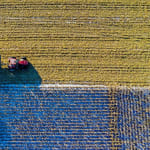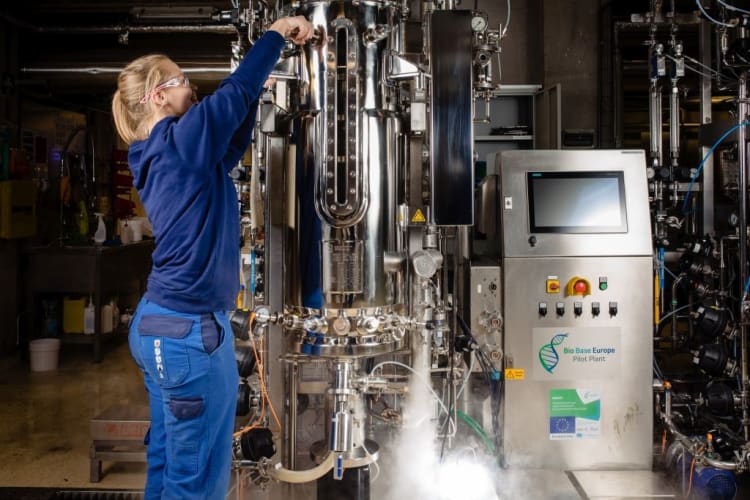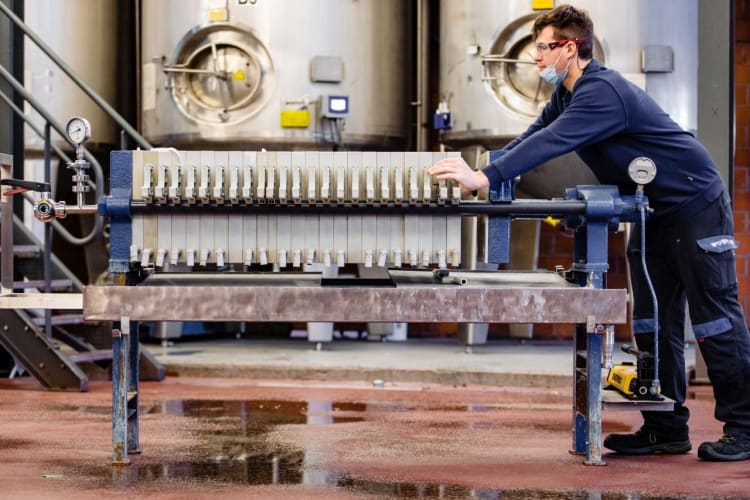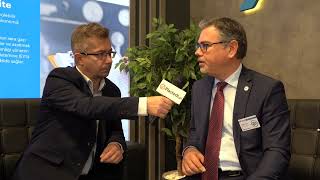
Waste2Func, a European BBI-JU funded project has been granted a 6,7 M€ budget to build a platform to efficiently collect food waste from agriculture, food industry, supermarkets, auctions and restaurants. These food wastes are currently often discarded, left on the field or incinerated and thus show no value. They will become valuable raw materials to be converted into bioplastics and biosurfactants, with applications in cosmetics, household - and personal care products. This conversion process uses industrial biotechnology.
The project brings together 12 partners from 5 countries, including SMEs, large enterprises such as Croda, Evonik and Ecover, research institutes and agricultural associations. The platform will decrease CO2 emissions by at least 20%, increase value from waste 2-10 fold and create jobs for the primary and downstream sector in Belgium and Europe.
Currently, food waste flows, such as fruit and vegetables that don’t meet the standards or bad batches from food processing companies that no longer can be sold, often don’t have a potential end-use route. Consequently, they just rot on the field, are discarded or even incinerated, which leads to unnecessary CO2 emissions.

Waste2Func can offer a solution to this problem. Project Coordinator Sofie Lodens explains: “These emissions can be avoided by using these streams to convert them in to high-value products. TripleW, an Israeli/Belgian SME and Ghent University together with the Bio Base Europe Pilot Plant have developed technology to convert mixed batches of food waste into functional ingredients, more specific lactic acid and microbial biosurfactants respectively, that can be used for the production of bioplastics and personal- and home care applications respectively. Waste2Func will build a logistic platform to collect the agricultural and food waste and will demonstrate the conversion technology at large scale. ”
The first challenge is the establishment of the logistic platform allowing efficient collection of food waste streams without end use. To this end, the project will develop a registration website/app that can be used to register food waste flows from the agriculture and food industry for collection by a waste collector. Farmers will be intensively consulted on how the project can make the collection of such food wastes worthwhile for them and what compensation should be given in return and thus look into a new revenue model for farmers. In addition, consultations will be held about the availability of these waste streams, both among farmers and the (food) industry.
Twelve partners from five countries including several SMEs and three large industries are involved to convert the collected waste into functional molecules to be applied in market products. Sofie Lodens explains: “TripleW already started their lactic acid production batches in their demonstration plant on the site of Group Op de Beeck in Kallo, Belgium. Ghent University and Bio Base Europe Pilot Plant recently established the spin-off company “Amphi-star” to bring their technology for the production of microbial biosurfactants to the market.” The functional ingredients produced within the project, will then be tested and evaluated in end products by large companies such as Evonik, Croda and Ecover.
The ultimate goal at the end of the project is to understand the potential of establishing a biorefinery in which functional molecules can be made from all this collected food waste in a sustainable and economically profitable way. These functional molecules can subsequently be used as building blocks for bioplastics and as ingredients in cosmetics, in biological detergents and in numerous other applications. Waste2Func will contribute to a more sustainable industry by using renewable resources and by its circular approach. This will decrease CO2 emissions by at least 20% compared to the current production processes of these molecules and increase value from waste 2-10 fold and create (high-tech) jobs for the primary and downstream sector in Belgium and Europe.



